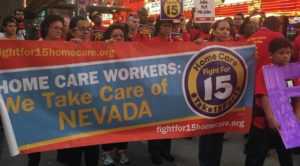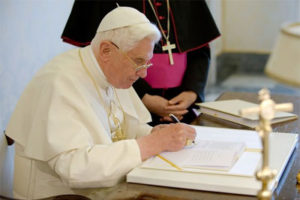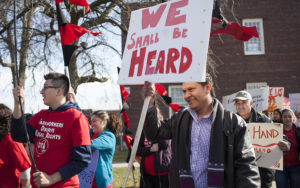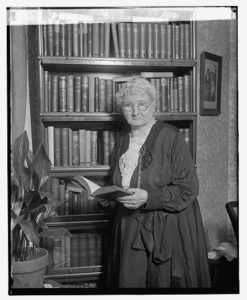Some philosophical and religious traditions look askance at fashion. Eastern religions, for example, focus on the transitory nature of the material world. They advise us not to get infatuated with appliances, jewelry or one’s wardrobe. Gnostic philosophy, which has at junctures influenced Roman Catholicism and other expressions of Christianity, says appearances are a deceptive illusion. Some strains in evangelical Christianity are unimpressed with art because only a direct relationship with God is important.
Being an Irish-American Catholic, I carry around an analogical imagination. That is, in my tribe God is mediated through the world’s beauty and order, particularly through God’s primary analogue, other people. Nature, artifacts, responsive institutions, plus architecture, music, film, novels and even fashion can dispose me to God’s grace.
This column won’t at first ring true to anyone who knows me because nearly my entire wardrobe is off-the-rack from outlet stores. Nonetheless, I take notice of a student or neighbor who has style, a look, or flair—maybe an unusual hat, a colorful scarf, or a sport coat that seems to match the personality. These touches, at times, briefly reflect the divine to me. In Fyodor Dostoevsky’s novel, The Idiot, a character says, “The world is saved by beauty, if at all.” That seems right to me.
Catholicism is in favor of fashion, though with an urgent caution. There is no place for the exploitation of designers and models, including on the so-called reality TV shows. Similarly, the sweatshop conditions in the apparel industry must give way to international labor standards.
Bill Cunningham (1929-2016), the longtime fashion reporter for New York Times, brought his Catholic faith to bear in his work, though implicitly. Cunningham himself was no fashion plate. He usually wore a blue jacket with large pockets. Into his 80s, Cunningham peddled a bicycle around Manhattan. He never owned a TV; he didn’t go to movies. Yet society types and models were pleased whenever Cunningham drifted into a party or a show. Cunningham never sampled the hors d’oeuvres nor even took a soda at any of the galas. “I just try to play a straight game, and in New York that’s almost impossible to be honest and straight,” he once said.
Upon return to New York from his service in the Korean War Cunningham took newspaper writing assignments about fashion. He added a $35 camera to his reporter’s notebook. By the late 1970s he was full-time and soon developed a popular “On the Street” column.
His idea was that fashion is not just patterns and material in a studio. I went to “the shows and the streets to see how people interpreted what designers hoped they would buy,” he once said. He found out that ordinary New Yorkers in their own way create or influence fashion. Cunningham came to believe that fashion is all around. He spent many hours on the streets looking for a stylish accessory or a unique outfit. On the street, he said, “you find the answers you don’t see at the fashion shows… My whole thing is to be invisible. You get more natural pictures that way, too.”
Fashionable does not mean expensive. It is about a person’s confidence and their consciousness of the world around them. We are saved by beauty.
Cunningham’s humble lifestyle attuned him to the beauty of all God’s creation. One of Pope Francis’ major themes is the priority of experience over ideology or abstractions. Cunningham once explained his approach to work in words that echo that theme: “I never go out with a preconceived idea. I let the street speak to me.” Seek beauty and it will find you.
Trivia contest: Who was the world’s first fashion designer? Hint: Genesis 3:21.
Droel edits INITIATIVES (PO Box 291102, Chicago, IL 60629), a free newsletter about faith and work.





